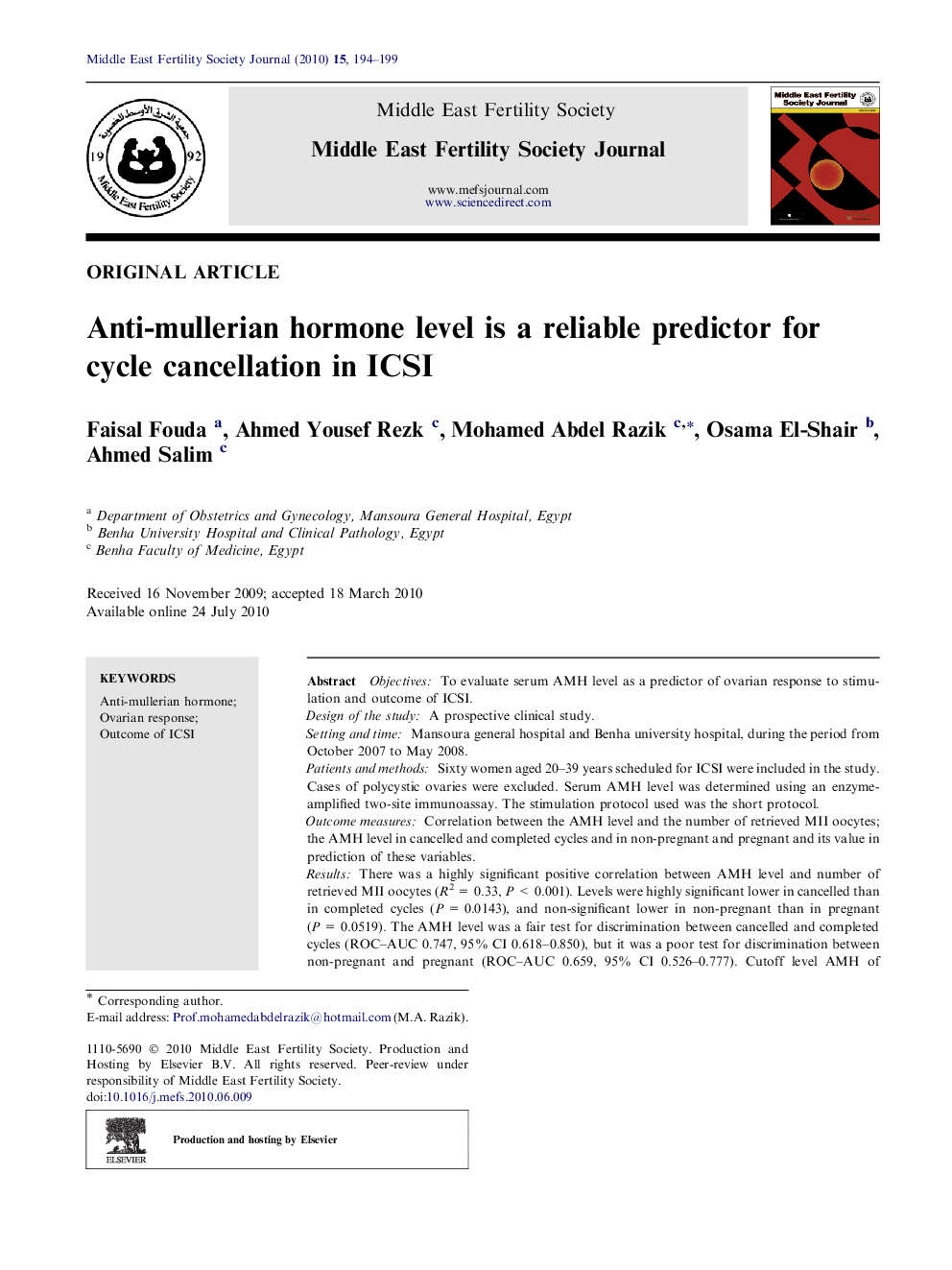| Article ID | Journal | Published Year | Pages | File Type |
|---|---|---|---|---|
| 3966421 | Middle East Fertility Society Journal | 2010 | 6 Pages |
ObjectivesTo evaluate serum AMH level as a predictor of ovarian response to stimulation and outcome of ICSI.Design of the studyA prospective clinical study.Setting and timeMansoura general hospital and Benha university hospital, during the period from October 2007 to May 2008.Patients and methodsSixty women aged 20–39years scheduled for ICSI were included in the study. Cases of polycystic ovaries were excluded. Serum AMH level was determined using an enzyme-amplified two-site immunoassay. The stimulation protocol used was the short protocol.Outcome measuresCorrelation between the AMH level and the number of retrieved MII oocytes; the AMH level in cancelled and completed cycles and in non-pregnant and pregnant and its value in prediction of these variables.ResultsThere was a highly significant positive correlation between AMH level and number of retrieved MII oocytes (R2=0.33, P<0.001). Levels were highly significant lower in cancelled than in completed cycles (P=0.0143), and non-significant lower in non-pregnant than in pregnant (P=0.0519). The AMH level was a fair test for discrimination between cancelled and completed cycles (ROC–AUC 0.747, 95% CI 0.618–0.850), but it was a poor test for discrimination between non-pregnant and pregnant (ROC–AUC 0.659, 95% CI 0.526–0.777). Cutoff level AMH of 0.9ng/ml had the best sensitivity (80%) and specificity (64%) in predicting poor response and cycle cancellation (P<0.01), but it was of no value in predicting non-pregnancy.ConclusionsAMH is a reliable marker for ovarian response to stimulation as regards the number of retrieved MII oocytes and cancelled or completed cycles, but not for the success of ICSI as regards non-pregnancy or pregnancy.
